#but yes conlangs
Text
I've spent an inordinate amount of time parsing the few examples we have of Old High Gallifreyan text, and here at last is the result of my labors!
The Old Gallifreyan alphabet:
The alternate forms of letters may be used interchangeably with their main forms; the differences are purely cosmetic, much like the difference between cursive and print-style writing.
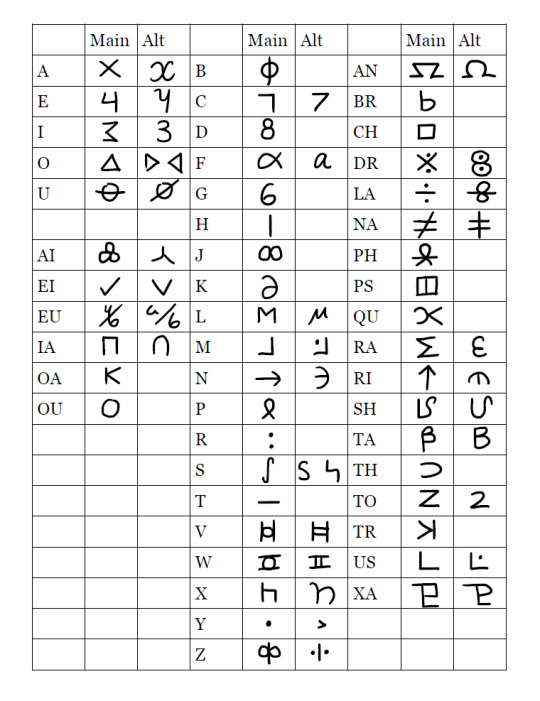
Now for my analysis of the existing texts. It's rather long, so I've put it below the break!
EXAMPLES OF OLD HIGH GALLIFREYAN TEXT
ITEM ONE

Supposedly from “The Five Doctors,” though I can’t spot this writing anywhere. Translation given in episode.

ORA PSYERPA
O – honorific indicating uniqueness, may be rendered with the definite article “the”
R – combined with the definite honorific, a common abbreviation of Rassilon’s name
A – an alternate version of the possessive “ya,” used only when the possessive noun is already abbreviated
Psyerpa – a general term for harps and other large stringed instruments
Thus, the full text reads:
O-Rassilon-ya psyerpa
The Rassilon’s harp
ITEM TWO
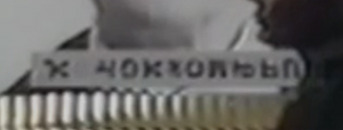
From “The Colony in Space,” across the bottom of the Doctor’s mugshot. No translation given.

QU ETHOA TRIOUAX BRIA
Qu – This is not a complete word, merely a letter used in this case for alphanumerical file designation: note that it stands alone, separate from the main text.
Ethoa – exile
Triouax – an infinitive verb, “to persist” or “to remain in effect”
Bria – a conditional modifier used exclusively in bureaucratic contexts, implying the need for occasional update of information or policy.
This text is a record of the Doctor’s sentence, and may be rendered something like this: Exile: to remain in effect barring further review.
ITEM THREE
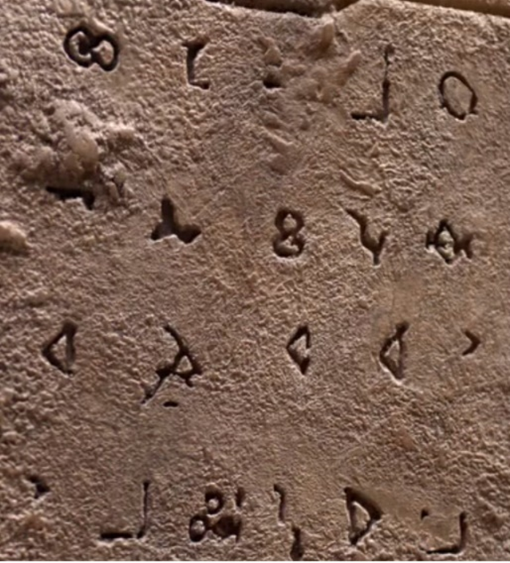
From “The Time of Angels.” Translation given.

JUSYMOU CAIDEU OXA OOYY MAISOM
Jusymou – An archaic greeting, roughly equivalent to “well met” or “hail.”
Caideu – self, soul, or “hearts” in a poetic sense
Oxa – prepositional suffix, “part of”
OOYY – a conceptual abbreviation that combines the two meanings of the solitary letter O (definite article + symbol of individuality) and the mathematical use of the letter Y (usually indicating a dimensional shift). Literally, this means something like the individual, shifted two dimensions. In practice, it refers to a Time Lord’s fifth dimensional aspect.
Maisom – name, designation, identification
Thus, a literal translation would read something like this: Greetings, soul-linked fifth-dimensional name!
Or as the Doctor paraphrases it: Hello, Sweetie.
ITEM FOUR
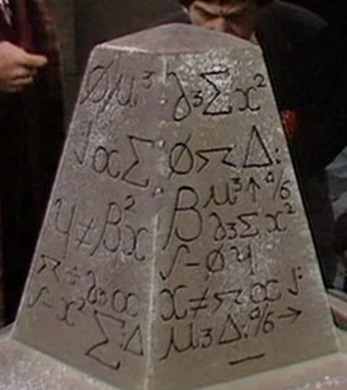
From “The Five Doctors.” Translation is given, though it’s not specified which face of the obelisk corresponds to which section of the text.
First Face:

RA NASA TO TANA EURIFSTAN OBLR ORE NATA
Ra – where
Nasa – sleep
To – in
Tana – lies, reclines, rests
Eurifstan – eternal, endless, timeless. Here it modifies the verb, so it should be rendered as an adverb.
Oblr – abbreviated form of obelar, tomb or grave
OR – the same abbreviation seen previously, “The One And Only Rassilon.”
E – an alternate version of the possessive “ya,” used only when the possessive noun is already abbreviated
Nata – a basic verb of being, is
This yields the following literal translation: Where sleep-in lies eternally, tomb Rassilon’s is.
Or as the Doctor translates it: This is the Tomb of Rassilon, where Rassilon lies in eternal sleep.
Second Face:
The text on the second face is never seen. The Doctor translates it as: Anyone who's got this far has passed many dangers and shown great courage and determination.
Third Face:

ULIREIF RAENATA TOAAN LAKI FSTA TORARO
Ulireif – to lose everything, to be utterly defeated
Raenata – an emphatic form of the being-verb nata, indicating that something really, truly, permanently is
Toa’an – to win everything, to be crowned victor
Laki – a compound conjunction combining la (so) with ki (and): “and so”
Fsta – an abbreviated form of festoa, a winner or leader
Toraro – future tense of torar, to fail or collapse
Thus: To lose all is truly to win all, and so the winner will fail.
Or as the Doctor puts it: To lose is to win, and he who wins shall lose.
Fourth Face:

KIRA ATOUNA OR TA LIRI EUKI RAATO SUTE ANAAN FEIRLIO REUNT
Kira – takes
Atouna – ring
OR – the same abbreviation seen previously, “The One And Only Rassilon.”
Ta – from
Liri – hand
Euki – a compound conjunction combining eu (then, next, afterward) with ki (and): “and then”
Ra’ato – future tense of ra’at, to wear
Sute – reward, prize, payment
Ana’an – desired, sought-after
Feirlio – future tense of feiril, to get or acquire. Note that this is an irregular verb: the last two letters switch places when adding any tense ending.
Reunt – immortality, eternity
Literally: Takes ring Rassilon-from-hand and then will wear, reward-sought will have: immortality.
Or as the Doctor translates it: Whoever takes the ring from Rassilon's hand and puts it on shall get the reward he seeks: immortality.
#doctor who#gallifreyan language#conlang#old high gallifreyan#no I have no idea how many hours I spent figuring this out#yes I'm working on figuring out the modern alphabet too (the one Four uses when he writes his letter at the beginning of Deadly Assassin)
227 notes
·
View notes
Text
Me, an hour into explaining the plot of the first third of CoH: and then he goes with this elf guy to this other elf guy, his name is Thingol-
My sibling, only paying a little attention: wait isn't that the guy who banned quinoa
#i'm crying about it gang its so funny#ah yes#my favorite conlang#quinoa#i love them theyre so funny sometimes#don't worry they ranted back at me#song being loud
220 notes
·
View notes
Text
(re: "Awoken headcanons") Once again thinking about how different generations prefer different descriptors; how diaspora/emigrants make new dialects and slang; how people who are learning a new language - or grew up bilingual but aren't fluent - encounter mishaps semi-regularly and always have a story to tell because of it.
Once again thinking about how those situations might apply to Awoken who know Speech [the Awoken language] or are learning it.
Later-generation Awoken speaking differently than the original 891 and Distributary Awoken, in the same way modern Japanese differs from older Japanese.
Earthborn and Reefborn using different words for items, like how backpack can be "mochila" and "bolso" and "backpack."
Awoken Guardians practicing Speech with their friends, and every time they forget a word ("Erð þið með <bottle opener>?") or mishear one ("An eagle is stealing chickens?") or mispronounce it, they have to start over because everyone is laughing so hard.
Earthborn forgetting Speech as a way to rebel. Earthborn being told that they're "not actually Awoken" if they don't know Speech. Awoken Guardians using Speech as a way to reconnect with themselves and their heritage. Reefborn changing words in Speech to bridge the divide between Reefborn and Earthborn, to unlearn old prejudices, to remember they aren't alone in the universe and that the legacy of the Awoken extends far beyond the Reef.
Once again thinking about language. ;A;
#yes this is connected to my personal experiences#brb gonna cry in a corner now#destiny the game#destiny 2#destiny lore#destiny fan lore#destiny fanon#destiny headcanon#linguistics#conlang#destiny awoken#crow-posting
30 notes
·
View notes
Text
literally if a movie actually invents a language, no matter how much it gets used in the story itself, I can't hate it. i don't care if the movie is good, bad, or just mediocre. I have to respect the level of commitment the creators went to.
#i'm saying stuff#constructed language#conlang#yes this (maybe unfortunately) includes thor the dark world
66 notes
·
View notes
Text
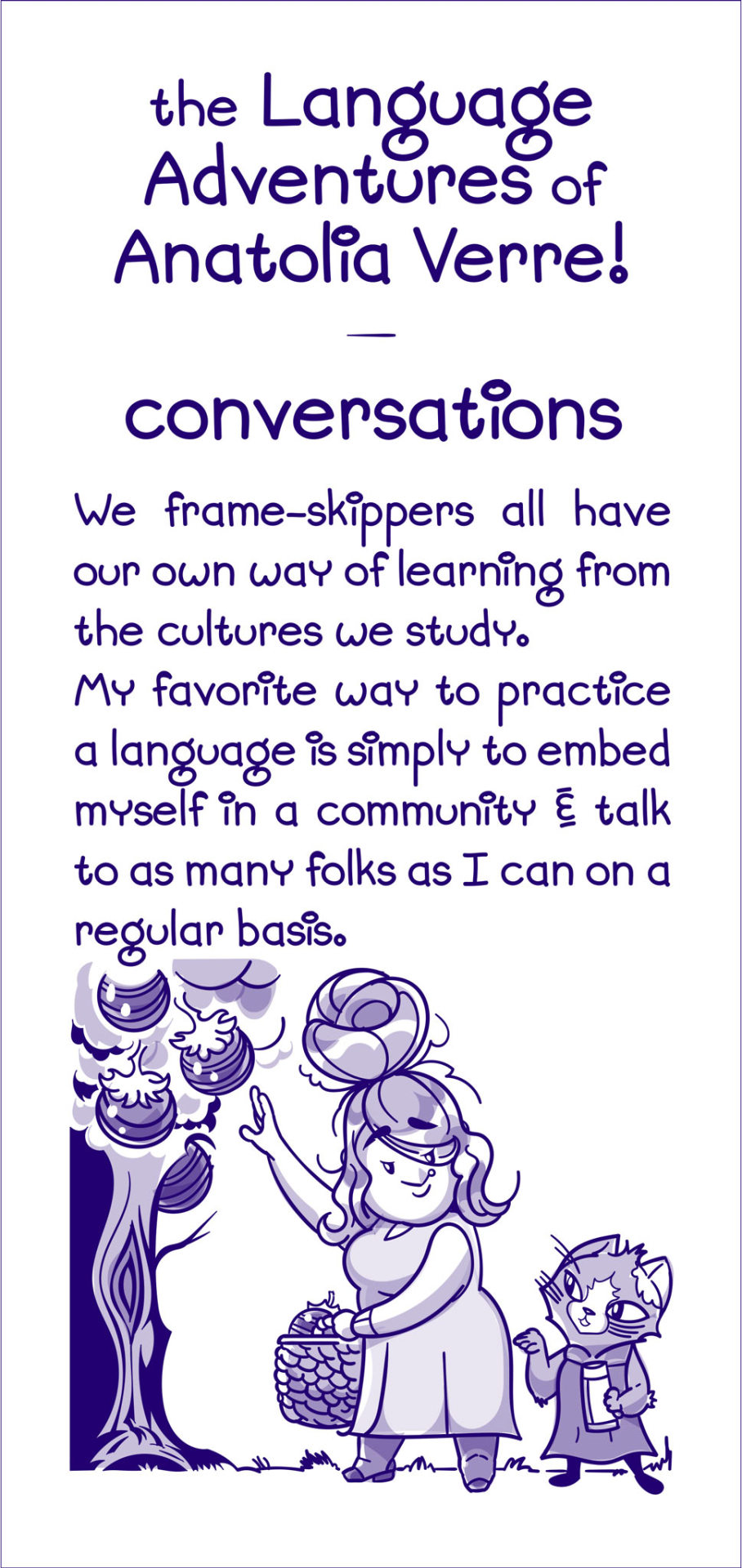

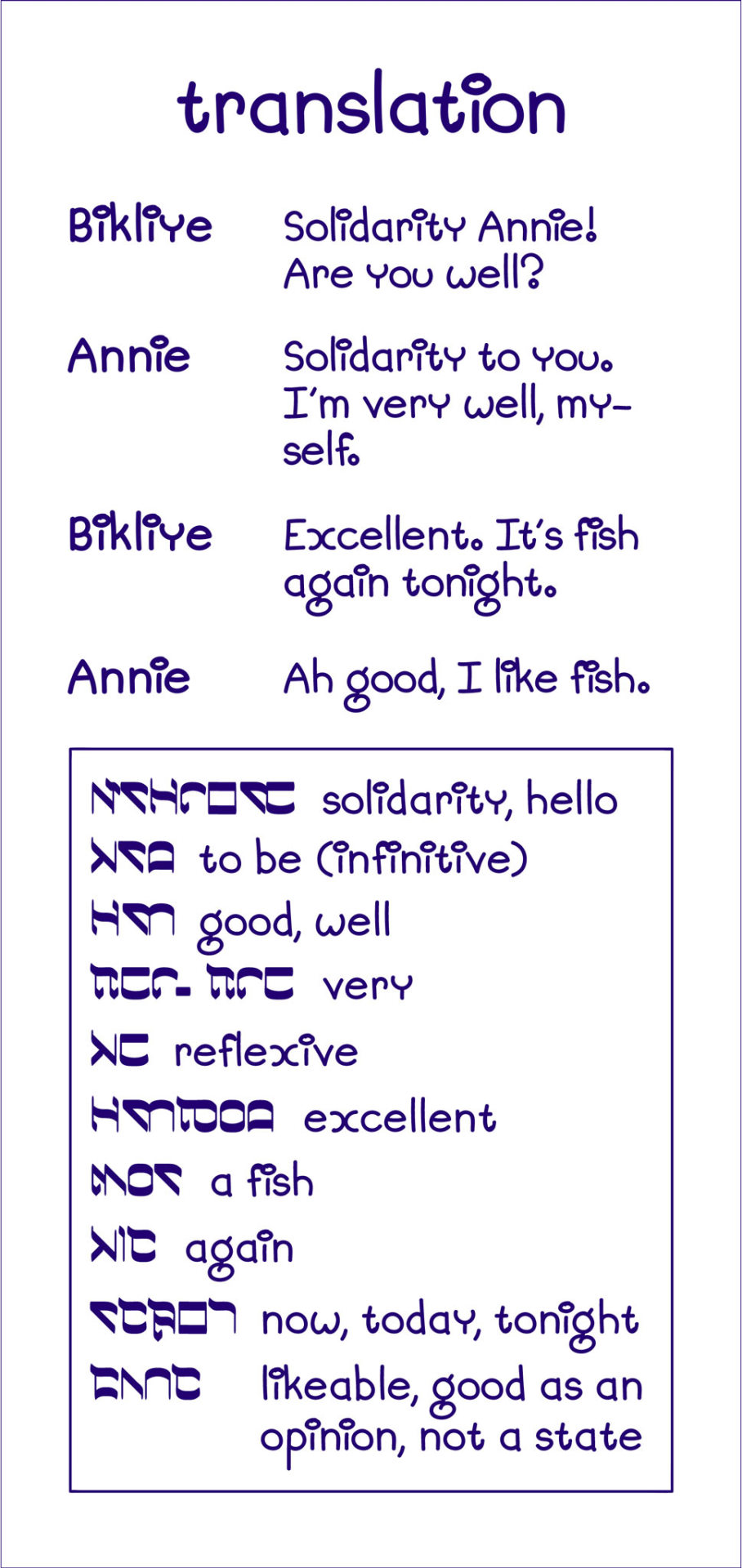
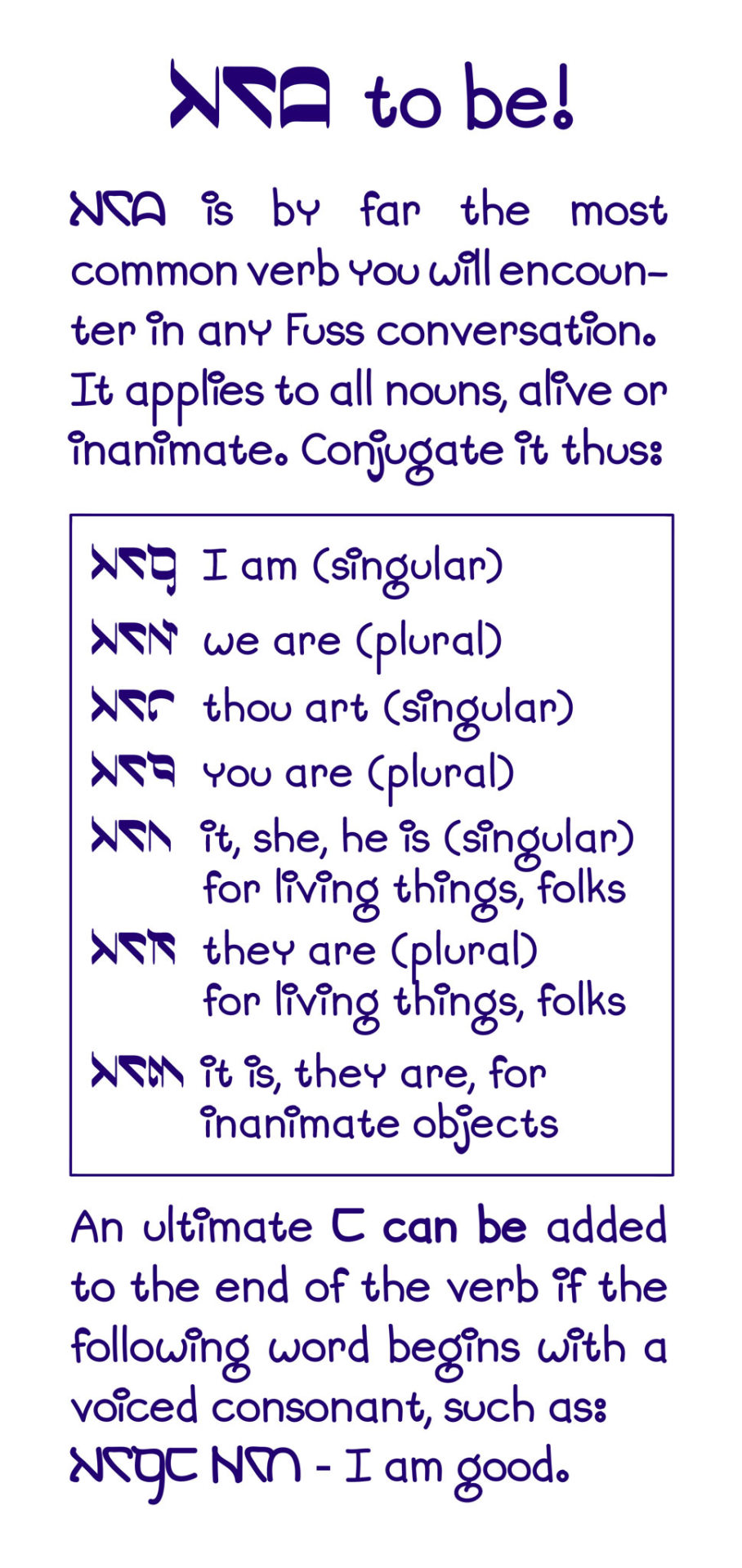
Conlang Corner 12.25.2023
vocabulary will no longer include pronunciation notes. if this is annoying, let me know 🙀
send me a dm if you would like a calligraphy of your name in Fuss!
the conlang corner is updated every Monday!
https://ko-fi.com/wobblydev
#conlang corner#monday#yes i know its tuesday today#this one was complicated#wobbly dev#conlang#fuss#farband
30 notes
·
View notes
Text
Clanmew: Counting, Measurements
For @willowthegraycat who requested this a billion years ago!
See also: Pronouns + Threat Level and Tribemew.
Welcome back to Cat ESL everyone! Today we're going to be talking about quantifying things.
The five Clans have a very unique number system. If you're looking for exact measurements, you will not find it here. Clan cats count using fractions, communicating size and 'completeness' instead of straightforward mathematical concepts.
Denominator Words
There are five "number" words, each responding to the 'denominator' (bottom number) of the fraction:
2 to 4 = "Arra" = Amount of pieces of prey that can fit in a mouth.
Direct translation: Amount.
5 = "Rarra" = Amount of claws on one paw, amount of Clans
Etymology: Clan Amount
9 = "Pabparra" = Amount of a full day's patrol assignments
Etymology: Patrol Amount
12 = "Husskarra" = Amount of whiskers on one side of the face
Etymology: Whisker Amount
30-ish = "Shomarra" = Amount of days in a month
Etymology: Moon Amount
Usually, the fraction chosen to describe an amount is relevant to the concept at hand. Arra is for tasks like a checklist. Rarra describes collections of things. Pabparra is for working in teams. Husskarra is about danger and hordes. Shomarra is for keeping time.
Technically, "3 quarters of Husskarra" is a "Whole Pabparra," but the former implies you should be alert because there could be unknown danger, where the latter means completeness and good planning.
Human numbers, 1 2 3, are straightforward descriptors of reality. Clan fractions are symbolic of something.
Breaking the Fraction
For each fraction, the completeness is specified with a prefix,
Beginning = "Prra"
Quarter = "Warl"
Half = "Yosh"
Three Quarters = "Ark"
Entire = "Ul"
3 quarters of Husskarra would be, "Ark-husskarra." One whole Pabparra is, "Ul-pabparra"
Sometimes these just don't cut it-- how would you tell someone to meet you in three days, since Shomarra is such a large fraction? Even "Warl-shomarra" means a whole week!
You add onto the fraction itself, with,
Om Owar = "And Another"
Nyo Owar = "Less Another"
To say "three days," the phrase is "Prra-shomarra, om owar, owar, owar." For a month that will be about a day shorter than usual, they would say, "Ul-shomarra, nyo owar."
Husskarra is sometimes doubled to invoke the mental image of needing to use one's whole face to fathom the danger, or just for hyperbole to describe an overwhelming amount of something.
"Husskarra om owar husskarra!" = "Half a face of whiskers, plus another!" Says Jayfeather, being given one (1) minor inconvenience
When this is applied to Pabparra, in contrast, it implies being over-prepared or being careful. "Ul-pabparra am owar ul-pabparra, am owar" = "I doubled the patrols and threw in some extra."
The Uniqueness of Arra
The closest thing the Clan cats have to true counting is modifying Arra with these prefixes, then using 'ul' as a sentence modifier to imply fractional completeness.
"Three toads" = "ark-arra amam ul" = "Three-quarters-amount toad only."
If you said, "Ark-arra amam," you would have said that there are three toads, maybe more. This is helpful in Clanmew because on a hunting trip, there's usually more than what you can currently see.
Besides its numerical amount being situational, there is another interesting quirk of 'arra.' It can mean completeness, and also, loneliness. "Ul-arra" is a completed fraction and can mean many things; whole, finished, the full moon's light, lonely, or translated simply, just one.
Clan cats define themselves as being part of something, and always having a task to do, even if that task is to take their well-earned midday nap. There is a common expression of despair,
"Arrl gryr ul-arra wrah!" = "I have to do everything myself!" = "(I) must contain wholeness mine!"
Onewhisker's name was a reference to his birth; the only child of Cloudrunner and Larksplash, both his mother and the rest of his litter having not survived the kitting. His father named the child "Ul-arra-mew," "Onekit," "Only-Child."
(Bonus Vocab: Onewhisker = "Ul-arra-hussk." Onestar = "Ul-arra-shai")
Vocab Round-up Below!
Denominator Words
2 to 4 = "Arra" = Amount
5 = "Rarra" = Clan Amount
9 = "Pabparra" = Patrol Amount
12 = "Husskarra" = Whisker Amount
30-ish = "Shomarra" = Moon Amount
Fraction modifiers
Beginning = "Prra"
Quarter = "Warl"
Half = "Yosh"
Three Quarters = "Ark"
Entire = "Ul"
Om Owar = "And Another"
Nyo Owar = "Less Another"
Et Cetera
Whisker = Hussk
Must, have to = Arrl
Contained/Contains/Will Contain = Grryrrg/gryr/gry
Toad = Amam
Kitten = Mew
Moon = Shom
Star = Shai
#Clanmew#Clan Culture#Conlang#conlanguage#Warrior Cats#And yes I'm committing to the bit that Onewhisker is an only child don't @ me Onestar's Concussion
114 notes
·
View notes
Text
Made a thing of an intercom announcement in a teleportation warp hub, because I can. Probably could've done better, but I need to use the best take the moment I get it. Here's a transcription and translation:
"Asl nliwayeğo cu-Vulvren cu-Lijaxel cāza-Vofağláf, vujt'al cu-Livmanznaf cu-Łt'ējn: tsa-levp'ā cu-lezrağn cu-ācèya, āgxōnr azmvlacwœ tcē-yú-wal xel-Verel fr-lce cu-abravrk'ūn pux-lejni tsa-lce yú. Má ēdzējağleyāf cu-flacwœ tcē-yú-wal xel-flacwœ ālxōr. T'ezl ēzr̄fl pi-lisa, má ēdzējağleyāf cu-flacwœ tcē-yú-wal xel-flacwœ ālxōr. Lcanznin tlezn tsa-avren fl. mVulvren cu-Lijaxel cāza-Vofağláf cu-stux ‘ōf tsa-levp'ā nar nedzasláf kxun-flacwœ, kā tcān danloxel cni-lesar tsa-zāsláf."
"This is an announcement from the Department of Interplanetary Transportation, a subdivision of the Ministry of Progress: due to system malfunctions, gate 2-1-3 bound for Erel at 16:00 has been delayed by one hour. All passengers boarding gate 2-1-3 must proceed to gate 16. Once again, all passengers boarding gate 2-1-3 must proceed to gate 16. Our deepest apologies for this inconvenience. Thank you for teleporting with us today, and we hope you have a safe warp."
#conlang#constructed language#artlang#artistic language#seraphic#collective seraphic#audio#linguistics#yes im very cool and with it thank you for noticing
18 notes
·
View notes
Text
Sunlight by Hozier - in Mando'a
If you remember this post where I translated I See Fire into Sindarin, you probably won't be all that surprised by this. I've fallen head-first into the Star Wars fandom (admittedly second-hand, but still), and of course, being me, I went straight for the conlangs. Mando'a might not be the most fleshed out language of the GFFA, but it is the one with the most Culture, at least in the fandom, so it's the one I gravitated to. And honestly, I really like how... brisk it is? It drops unnecessary pronouns and verbs, barely bothers with tense at all, and contracts everything. It's so much fun to play with.
Sunlight isn't the first song I started translating into it (that would be Born For This from the Spiderverse movie), but it is the first one I've finished, because matching Mando'a to English scansion is hell. It struck me as a very Codywan song, which is why I picked it to translate (yes, I do imagine Obi-wan composing/singing it in honour of Cody pretty much every time I listen to it).
I did have to make up a couple of words because the dictionary I use didn't have even a near-equivalent to the concept I was looking for, and those will be marked with a * and I'll add the 'etymology' of them at the end. (If anyone knows any other Mando'dictionaries, throwing me a link will win you my undying gratitude.) I also had to get creative with my interpreations of the meaning of certain lines, since, just to pick the most obvious example, Mandalorians probably don't have the myth of Icarus like we do.
Any feedback, advice, or just general linguistics flailing is always welcome. Now, without further ado, here it is:
Tran'nau* (Sunlight)
Ni ru'nevor nau (I shunned the light)
Ru'medinui naak be ca'tra (I shared in the peace of night)
Ni nu'mirdi ba'slanar (I wouldn't think to leave)
Par tran'nau, tran'nau, tran'nau (For sunlight, sunlight, sunlight)
Tion'ad karta nu'redal (Whose heart doesn't dance)
Dar'shekemi tra be ca'tra (Wouldn't abandon the stars of night)
Sha solyc hettyc haa'it (At first burning vision)
Be tran'nau, tran'nau, tran'nau (Of sunlight, sunlight, sunlight)
Ni r'echoyla ba'gar, tran'nau (I was lost to you, sunlight)
Ru'miy sa kisen* ba'gar, tran'nau (Flew like a moth to you, sunlight)
Ner tran'nau (My sunlight)
Gar kar'tayli tran'nau (Your love is sunlight)
Gar kar'tayli tran'nau, tran'nau, tran'nau (Your love is sunlight, sunlight, sunlight)
Gehat'ik arasuum (The tale remains the same)
Ru'rejor bal ven'rejor (Told before and told again)
Runi ru'got* lo ciryc pitat (The soul that's born in the cold rain)
Kar'mir tran'nau, tran'nau, tran'nau (Knows sunlight, sunlight, sunlight)
Mar'e lis dinuir gai (At last I can give a name)
Ba tracin haaranovyc (To a hidden flame)
Sa kar'tayli darasuum (As love/knowing forever)
Ner tran'nau, tran'nau, tran'nau (My sunlight, sunlight, sunlight)
An tengaana ba'ni, tran'nau (All that's displayed to me, sunlight)
Ratiin kar'mir ba'ni, tran'nau (Is always known to me, sunlight)
Ner tran'nau (My sunlight)
Gar kar'tayli tran'nau (Your love is sunlight)
Gar kar'tayli tran'nau, tran'nau, tran'nau (Your love is sunlight, sunlight, sunlight)
Gar kar'tayli tran'nau (Your love is sunlight)
Gar kar'tayli tran'nau, tran'nau, tran'nau (Your love is sunlight, sunlight, sunlight)
Tran'nau (Sunlight)
An ner alii'gai* lo gar gaan solus (All that I am is in your hands)
Ke'juri ni ulyc, ner tran'nau (Carry me carefully, my sunlight)
An ner alii'gai* lo gar gaan solus (All that I am is in your hands)
Ke'juri ni ulyc, ner tran'nau (Carry me carefully, my sunlight)
Antuur* mhi cuy tome (Everyday we exist together)
Kar'mir gar ner shereshoy (Know that you're my reason for living)
Ner oya bal kyr slati* gar (My life and death belong to you)
Ner tran'nau, tran'nau, tran'nau (My sunlight, sunlight, sunlight)
Narbatir* sen'tra (Wearing a jetpack)
Kyr'nayl'gam* briikasyc (I'm death-trap clad happily)
Galar carud ni trattokor (Spilling smoke I fall)
Chur tran'nau, tran'nau, tran'nau (Under sunlight, sunlight, sunlight)
Gar kar'tayli tran'nau (Your love is sunlight)
Gar kar'tayli tran'nau, tran'nau, tran'nau (Your love is sunlight, sunlight, sunlight)
Gar kar'tayli tran'nau (Your love is sunlight)
Gar kar'tayli tran'nau, tran'nau, tran'nau (Your love is sunlight, sunlight, sunlight)
Gar kar'tayli tran'nau (Your love is sunlight)
Gar kar'tayli tran'nau, tran'nau, tran'nau (Your love is sunlight, sunlight, sunlight)
Gar kar'tayli tran'nau (Your love is sunlight)
Gar kar'tayli tran'nau, tran'nau, tran'nau (Your love is sunlight, sunlight, sunlight)
Tran'nau (Sunlight)
Tran'nau (Sunlight)
Tran'nau (Sunlight)
Tran'nau (Sunlight)
Tran'nau (Sunlight)
[*tran'nau = tra (star field)/tranyc (sunny) + nau (light)]
[*kisen (moth) = kih (small) + senaar (bird)]
[*ru'got (born) = ru- (past prefix) + goten (birth)]
[*alii'gai (identity) = aliit (clan)/aliik (sigil/symbol) + gai (name). This is technically already a word that means 'colours', but I took that to mean specifcally the colours one wears on their armour, the 'face' they show the world, i.e. their identity.]
[*antuur (everyday) = anay (every) + tuur (day)]
[*slatir (to belong to) = slanar (to go) + ti (with). I took the inspiration for this from the etymology of the word 'belong' in English.]
[*narbatir (to wear/to put on) = narir (to put) + bat (on)]
[*kyr'nayl'gam (death-trap-skinned) = kyr (end/death) + gaanaylir (to trap) + 'gam (skin). Since beskar'gam is literally 'metal-skin' and the word for skin literally translates to 'soft-skin', I figured it could also be poetically used to mean 'clad in']
#Mando'a#Star Wars#Codywan#song lyrics#translation#conlanging#Mandalorians#back on my linguistics bullshit#why yes I did deliberately not-quite parallel mandalorian wedding vows in this#and I figure the mandalorian version of 'wings made of wax' would be like a shitty jetpack or something#this is just what I do when I have writers block#and I've had a lot of writers block this last couple of years#I have SO MANY half-translated songs on my hard drive#so many
55 notes
·
View notes
Text
Flauło ukiłoha'a șapukuru'ia ahijirinantu.
behold, the first sentence i've managed to create in this remastered conlang. let me break it down into a gloss:
ɸɬæu-lˤɔ uk-ɪlˤɔ-hæʔæ tsæ-pukuru=ʔɪæ æhɪ-jɪrɪ=nændu.
fire-CL.Wt eye-CL.Wt-PROP PERF-do.carefully=3P.INAN.SG N.PST-sense=1P.DU
"You and I watched/have finished watching the fire."
more details under the cut if interested
a very literal translation of this (just to get an idea of how things will be expressed in this language) would be something like:
"You and I sensed the fire, with the eye, carefully."
in this language, there is no individual verb for the senses. instead, the light verb jiri (sense) is used along with the body part associated with the sense attached with the proprietive morpheme (in this example sentence, the eye). the coverb pukuru (do carefully) in this example merely serves to express the concept of 'watching' something as opposed to just seeing it.
hopefully this is readable and the formatting didnt get all screwed up. of course this is all subject to change, i am still very early in the process of giving forms to all these morphemes so they are very likely to be altered here and there.
(glossing terms)
CL.Wt - Classifier (Water)
PROP - Proprietive
PERF - Perfective
INAN - Inanimate
N.PST - Near-past
#conlang#language#minecraft#mineblr#linguistics#if youve read the word classifiers correctly yes fire and eye are classified as water in this language 👍
25 notes
·
View notes
Text
I can tell I'm doing a good job with the conlang because after leaving it be and coming back to it after months I'm as consternate as if I were reading a natlang manual. Like I guess you do need to be precise for spellcasting but do you really need that many articles
#the answer is yes#do you want to get blown up? that's what i thought#worldbuilding#language#(this conlang isn't for ToC but i might as well use its infant form for the few instances it may come up)
10 notes
·
View notes
Text
new star wars OC called Aah'Tesm
#yes it is for exactly the reson you think sdlkjfsklj#star wars oc#gotta add some stupid fuckin apostrophes bc obviously u cant create any conlang w/out em 🙄
20 notes
·
View notes
Text
Lexember, day 6. Something inappropriate, out of place
...heil wētse eala jātsa we aial — literally like a river needs a bucket. Idiom meaning "very unnecessary", "really don't need", "fifth wheel", "sticking out like a sore thumb".
Gloss: like need.PRES river have DO.INAN bucket
Another version of the idiom: aial he eala — river's bucket (bucket POSS river).
Aial (bucket) is an essential utensil in lārē household. There are a lot of bodies of water in the tundra, and there's no shortage of drinkable water, but you can't just go outside, take some water (ice, really) and drink it right afterwards if it's -50 Celsius outside. So every house has a large bucket always hanging before the "fireplace" (it's actually a bunch of hot stones; fires themselves are kept burning outside the house). It's very big and heavy, so that you don't have to run to the river a hundred times a day when a ~10-people household runs out of water. It's usually children's duty to watch the bucket and either go bring water/ice/snow themselves to fill it up, or tell the grown-ups.
Now, rivers are animate in soiwa. Although the culture and the mythology doesn't necessarily see rivers as "characters" (it's mostly about water spirits who could live in rivers or lakes), the language itself sees rivers as living things. (It's tied to blood as essence of life in lārē culture: if there's blood running, it's living; rivers have water running, so they're essentially living.) So it's quite natural for the language to treat rivers as characters in idioms.
But this "character" very obviously doesn't need a bucket like people do.
Some examples of how this idiom could be used (in translation):
We need another child in this house like a river needs a bucket.
Is he really going there? He is going to be like a river's bucket.
I don't want to be a river's bucket.
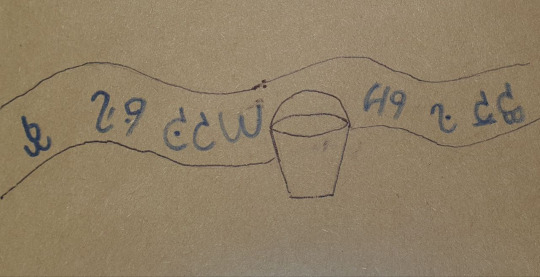
Blue is the word itself. For this lexember I'll try to incorporate writing system into simplistic pictures.
#lexember#conlang#conlanging#worldbuilding#soiwa language#lārē people#I use prompts from my local non-English conlang community#also yes of course i'm thinking about stanley parable: bucket edition what do you think
10 notes
·
View notes
Text
Thought I'd make a showcase of some of my conlangs, so I'll start with the one I'm working on rn
Or mesako! Jenojarko Ajir gi mo do heni'a'in.
[oɾ mɛsɐˈko] [jɛnojɐˈɾko ɐˈjiɾ ɡiˈ moˈ doˈ hɛniˈʔɐʔin]
Translation: "Hello! My name is Ire and this is my language."
This is Fjatli, or Sfarokchosti [sfɐ.ɾo.k͡xoˈs.ti] if you'd rather use the endonym. It's inspired mostly by the grammar of the Muscogee language but with a good few liberties taken, especially with my use of a German-esque orthography, and in its lore is spoken by an indigenous people who are known for their relationship with luck, their beautiful and intricately styled hair, and their perseverance against all odds
Much like Muscogee, Fjatli is polysynthetic. So words take multiple and often many prefixes and suffixes, so often entire sentences can be contained in just one word (which is actually a help since Fjatli doesn't have any pronouns at all)
Eraba. : Eat.
Erabata. : I eat.
Erabanita. : I am eating.
Anerabanita. : I want to be eating.
Jo'anerabanita. : I want to be eating you.
This is a weird example (and there are certainly more useful examples) but it shows how verbs work in Fjatli. Nouns, adjectives and adverbs operate similarly but aren't as complex (however this is still a WIP so I'm planning on expanding all of them.) I'll show an example of ownership and definiteness in nouns
Fjer : Friend
Cafjer : The friend
Fjerin : My friend
Fjerag : Your friend
Fjerob : Their friend
Fjerimin : Our friend
The main word order for Fjatli is generally VSO whenever other words are needed. So "the animal wants to eat a fruit" would be said in the order of "wants to eat the animal a fruit" similar to Irish, Welsh, Classical Arabic, and many Polynesian languages. Also make sure not to forget subject and object markers, similar to Japanese. Here's a full breakdown
A'aneraba ja cacoxot do t'ano.
[ɐʔɐnɛɾɐˈbɐ jɐˈ t͜͡ʃɐt͜͡soǃoˈt doˈ tʼɐnoˈ]
[It wants to eat it] [sm] [the animal] [om] [fruit].
And you can expand on this by putting indirect objects before the verb. Combine this with Fjatli's verb aspect system that can still give a detailed description of events in time without any tenses at all, and you get my absolute favorite sentence I've translated for this language: "I bleed through my instrument"
Isorogin chonsoho'inerta.
[isoˈɾoɡin xonsohoˈʔinɛɾtɐ]
[My instrument] [I have and often bleed through]
This is what I love so much about polysynthetic languages, like in just two (albeit pretty long) words this language can say something that takes English upwards of eight words to fully convey. Especially since the verb in that last sentence takes advantage of the perfect habitual aspect (where the verb has been completed and will be several times in the future) which can't be easily communicated in English
This was just an introduction to the basics of Fjatli, there's even some stuff in the greeting at the top of this post that I didn't get into so maybe if there's demand I'll make a follow-up that explains more (as a gift to anyone who notices that there's click consonants in this language). I also made a writing system for it and I'm not gonna let anyone live in peace until they've seen it because it's so cool (I say that about all the writing systems I've made)
Or menoko, fjerin!
Edit 1: fixed some glaring spelling mistakes (I wrote this at 4am and I'm not entirely sure it wasn't a fever dream)
Edit 2: finally found out how to do smol text
#did I make a conlang with no pronouns or tenses to challenge myself?#yes#guilty as charged#conlang#constructed language#langblr#language#linguistics#language arts#conlanger#conlanging
4 notes
·
View notes
Text
Want to learn how to swear in Mahknovchik?
I've been working on a conlang for @breathingxspace for a couple seasons now, and S4 has presented opportunities to develop a bunch of profanity!
Angry with someone?
Call them ne’werkem! (an unproductive member of society)
Or ne'celja! (Useless)
Or maybe say that you think they're ne’khrabroste. (A coward, lit. without courage)
Even MORE angry?
Say they're marzvats promandetion! (an untrained timewaster)
Or angra neftyanye! (willfully-ignorant trash)
Or really go all out and say someone is prom’det ne’celja ne’werkem! (a time-wasting, useless, non-productive member of society)
Angry AND poetic?
Try "Ne’uchit ultod’t oni to tukrasit." (Lit. "they can't teach a child to make art." Fig. they can't do the most basic & obvious things.)
Or say "Britsyaway oni konhae." (Lit. "They shave in the cafeteria." Fig. they are selfish at the expense of society.)
Want still MORE Mahknovchik?
The language primer can be found here: https://docs.google.com/document/d/12jSaLXhT_qH4whWAwr5vPFpK2VIwcz5dxDpPixasDXo/edit?usp=sharing
And the dictionary here: https://docs.google.com/document/d/13oSzpk5L272fRLrL-l8mo_yUlGA5aOc0zHswPeFsv98/edit?usp=sharing
(Sorry, I haven't written out all the IPA yet. Working on it.)
#breathing space#breathingxspace#conlang#constructed languages#Mahknovchik is a constructed language WITHIN the Breathing Space setting as well#it was deliberately made to be an independent language that could fully express anarchic ideas and thoughts#yes it's Pravic ok#not the Pravic people have already made#but spiritually it's the same thing#The Dispossessed changed my brain
10 notes
·
View notes
Text
one thing abt the tf movies that makes me ape shitt is i cant believe its the only thing where THEY SPEAK CYBERTRONIAN. WHERE DID ALL THAT GO... I WANT THEM TO TALK IN THEIR OWN LANGUAGE IN OTHER THINGS.
#maccadams#i cri#like ok. is it primarily used for like#scary villain speaking scary foreign language stuff.#yes.#its a crime optimus says like 1 thing in cybertronian the whole gd time#i want mooaaaar#like legally can they not use that like. conlang sheet anywhere else#some ppl who worked on those movies wrote other tf things#pls tell me... i want to know....
19 notes
·
View notes
Text
i've got conlang brain rn so that's what you're getting instead of art
my favourite way to start making a conlang or conscript is to work from a picture, like this warped train panorama (taken by Rhiannon Rasmussen) which became Vuwcid -

or this diagram of scarab beetle muscle cells that i saw in a museum that became Scarab -
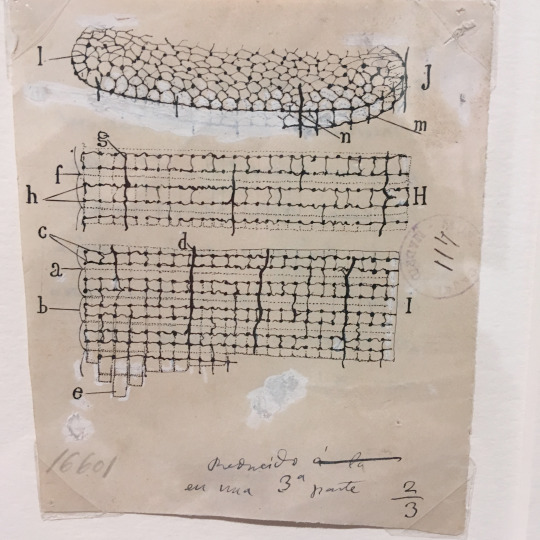
so this is a general announcement that if you ever see a weird jumble of letters or weird wiggles and you think it would make a cool language of some kind, send it to me. genuinely. i love the challenge of seeing what you can make out of some weird lines send that shit my way and i'll turn it into a language
#i mean if you want me to do it so you can use that language or script in a project#then you need to pay me lmao#yes i do conlang commissions!!#but if it's just for fun then shoot it my way babey#conlangs
9 notes
·
View notes